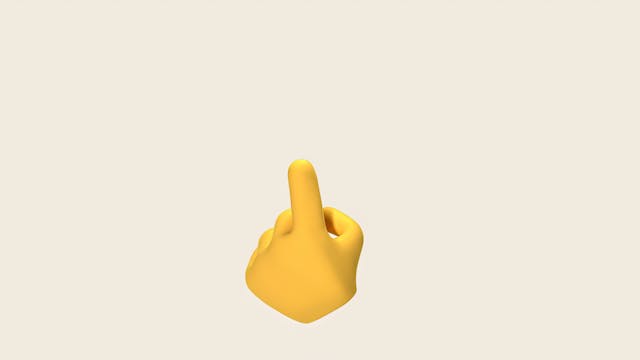Spongebob looking out window meme: Meaning, origin, impacts, and how it reflects FOMO and internet culture.
Memes aren’t just funny pictures floating around the internet. They’re tiny cultural mirrors. The SpongeBob looking out window meme is a perfect example of how a simple cartoon still image can capture universal human emotions like envy, longing, and the fear of missing out. Let’s dive deep into its origin, meaning, cultural significance, and why this meme remains one of the internet’s favorite emotional shorthand images.
Article Breakdown
What is the SpongeBob Looking Out Window Meme?
At its core, the meme shows Squidward Tentacles peering out of his house window at SpongeBob and Patrick, who are outside having fun together. Squidward is inside, alone, watching from behind the glass. The image became shorthand for feelings of exclusion, jealousy, sadness, or quiet resignation.
It’s often used when someone is “Squidward”, stuck indoors or left out, while others, represented by SpongeBob and Patrick, are enjoying life on the outside. It has become a visual metaphor for the classic human experience of being left behind.
Where Did It Come From?
The episode behind the meme
The scene originates from the SpongeBob SquarePants episode “That Sinking Feeling,” which aired in 2010. In the episode, SpongeBob and Patrick are gleefully hopping around between their houses, but Squidward, who lives in the middle, is irritated by their antics. He looks through his window, watching them with a mixture of annoyance and detachment.
While in the show this is more about Squidward’s grumpiness, the internet took that single frame and twisted it into something far more universal, quiet envy and longing.
From TV still to internet symbol
The image first started circulating online a few years later, when fans of the show began using it as a reaction image. It quickly became a favorite on Tumblr and then spread across Twitter, Reddit, and Instagram. Over time, captions, object labels, and creative edits turned it into the meme we all know today.
Why Does This Meme Resonate So Deeply?
The staying power of this meme comes from how much raw human experience it packs into one frame. Here’s why it works so well:
- The contrast of inside vs outside Squidward’s stillness behind the glass versus SpongeBob and Patrick’s energy outdoors creates a perfect visual metaphor for separation.
- Ambiguity of Squidward’s face His expression is subtle enough that you can project your own emotion onto it, jealousy, sadness, boredom, or quiet bitterness.
- Relatable to everyone Almost everyone has been in a situation where they feel like Squidward, whether it’s missing a party, being stuck at work, or scrolling social media while others live it up.
- Versatility The meme can represent FOMO, envy, regret, or even passive observation. That flexibility keeps it alive across different contexts and trends.
Everyday Situations Where This Meme Hits Home
To understand why the meme took off, let’s apply it to everyday life. Imagine these scenarios:
- Social media envy: You’re stuck at your desk while your friends post vacation photos. You are Squidward, they are SpongeBob and Patrick.
- Missed parties: You decided to stay home, but now you’re watching everyone’s Instagram stories and regretting it.
- Professional jealousy: Your coworkers are being celebrated for achievements, while you quietly feel stuck in place.
- Cultural trends: Everyone’s talking about the latest movie, song, or game, and you haven’t seen or played it yet.
Each of these moments is easily summed up by that one image, Squidward peering from the shadows at a world buzzing with joy.
The Deeper Psychology: FOMO in Action
One of the biggest emotional engines behind this meme is FOMO, the Fear Of Missing Out. It’s that gnawing feeling when you believe others are having rewarding experiences without you.
The SpongeBob looking out window meme perfectly captures FOMO because it’s not just jealousy, it’s passive, observant, and bittersweet. Squidward isn’t banging on the glass or shouting. He’s just… watching. And that subtlety mirrors the quiet pain of FOMO we all experience scrolling through feeds, seeing friends succeed, or realizing we missed out on something.
How the Meme Evolved
Over time, internet users have transformed this screenshot into countless variations. Some of the most common include:
- Labeling: Squidward represents “me,” while SpongeBob and Patrick are labeled with things you want to be part of, like “friends traveling,” “people in relationships,” or “coworkers getting promoted.”
- Pop culture twists: Sometimes other characters or events are pasted outside the window to represent trends or communities.
- Animated GIFs: The slight motion of Squidward’s eyes adds even more depth to the emotion.
- Cross-meme mashups: Combined with other meme formats to express layered feelings.
This adaptability means the meme stays fresh, constantly being repurposed for new cultural moments.
Why This Meme Matters Beyond Laughter
Memes might look silly on the surface, but they act as modern folklore. The SpongeBob looking out window meme is important for several reasons:
- Mental health expression: It gives people a simple way to express complex feelings like loneliness or envy without directly confessing them.
- Cultural thermometer: What people feel left out of, trends, milestones, movements, changes over time. Watching how this meme is used tells us what society values in the moment.
- Shared vulnerability: Posting this meme is a safe way of admitting “I feel excluded.” Seeing others share it builds community and makes people feel less alone.
- Communication shortcut: Instead of writing out paragraphs about your mood, one meme conveys it instantly.
The Right and Wrong Ways to Use It
Best uses
- Self-deprecating humor: Lightheartedly admitting you’re left out.
- Relatable marketing: Brands can use it when done authentically (like acknowledging Monday blues or missing fun events).
- Community bonding: Sharing it to express solidarity with others who feel excluded.
Pitfalls to avoid
- Overuse: Like all memes, if it’s everywhere, it loses its impact.
- Tone-deaf usage: Comparing trivial things to serious struggles using this meme can come off insensitive.
- Mocking others: The meme works when you’re Squidward. It loses charm if you use it to make fun of “the outsiders.”
Case Studies of Viral Uses
Here are a few examples of how people have applied this meme in viral ways:
- School life: Students posting it to show the envy of juniors watching seniors graduate.
- Workplace culture: Employees using it to highlight being left behind when colleagues advance.
- Pop culture trends: Fans without tickets using the meme to express envy of concertgoers.
- Social groups: People outside of cultural in-jokes using it to show the sting of exclusion.
These cases show how one screenshot from a kids’ cartoon became a universal emotional shorthand.
How You Can Use It Authentically
If you want to use this meme yourself, here are a few tips to make it genuine:
- Keep it personal: Tie it to your real situation so it feels relatable.
- Add thoughtful captions: A well-written line can elevate the meme beyond the surface.
- Know your audience: Use references that your community understands and connects with.
- Balance humor and honesty: A sprinkle of vulnerability makes the meme more engaging.
What This Meme Tells Us About Online Culture
The enduring popularity of the SpongeBob looking out window meme tells us a lot about life online:
- We’re living in “spectator mode” more often than we realize.
- Emotions like envy and longing are increasingly shared publicly, not privately.
- Social identity now includes exclusion as much as inclusion, we define ourselves not just by what we do, but also by what we miss out on.
- Memes like this act as pressure valves, letting people express their quiet frustrations without oversharing.
It shows that even a cartoon still frame can carry the weight of modern digital existence.
Key Takings
- The SpongeBob looking out window meme shows Squidward watching SpongeBob and Patrick from inside, symbolizing FOMO and envy.
- It originated from the 2010 episode “That Sinking Feeling” and became a meme through fan use online.
- The meme resonates because it’s flexible, relatable, and emotionally subtle.
- It reflects deeper themes of loneliness, comparison, and the psychology of exclusion.
- When used thoughtfully, it can be both funny and meaningful, but overuse or insensitivity can weaken its impact.
Additional Resources:
- Internet culture and memes explained: Great resource for understanding how memes evolve and why they resonate in modern culture.
- Database of meme origins and trends: Comprehensive breakdowns of memes, their history, and their cultural impact.



